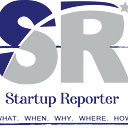Role of mental and emotional rehabilitation in Covid affected world
By Amit Vasistha — Founder & CEO, GALF
The not so welcome onset of the Covid era has literally changed the way people are thinking, moving, and making decisions. The world has largely been now separated between the 2 categories:
1) Who experienced Covid on themselves and survived
2) Who did not experience Covid directly
The ones who experienced have varied tales to share and their recovery stories have certain commonalities and differences too. Getting back post-Covid illness requires very thorough monitoring by the experts, as Covid infection affects multiple organs and systems simultaneously, the symptoms vary individual to individual and so does Rehabilitation. In mild cases, general body weakness, joint pain, reduced joint motion, sleep disturbances, lack of appetite is common, whereas in severe cases, lung, cardiac and nervous system get involved to the point of organ failure needing long-term medical assistance. It is not uncommon for them to suffer from anxiety, depression, PTSD (Post Traumatic Stress Syndrome). Everyone copes with the loss in the family in a different way, while deciding upon the rehab program for an individual recovering from covid, it is equally important to understand their pre-covid physical and medical history with existing comorbidities. Physical symptoms are handled by carefully planning regular routines and activities to enable normalcy in life again. Exercises and Physical activities should not be too tiring but challenging enough to restore pre covid health. Family counseling along with group therapy helps in curbing survival guilt. The clear advice would always be to not take any recovery or rehab-related intervention without the proper guidance. The disease is more than what meets the eye, is still unfolding its graveness and can leave a long-lasting impact on physical and mental health.
Corporates are in a unique stage to create a balance between being compassionate to being demanding from the colleagues who are returning from the Covid illness. It is increasingly becoming mandatory for companies to offer a concerted effort in form of a holistic wellness program to support the Rehab and Re-joining of the impacted employees. The key challenges that colleagues might experience during rehabilitation and return could include breathlessness, muscle loss and ache, delayed memory with difficulty in concentrating, general fear and mood swings. Companies must educate and sensitise the people managers about the need for differentiated deliverables, exercising compassion and empathy to help ease the colleague rehab and return process
As for the returning colleagues, It is important to understand that any rehabilitation process must be undertaken after recovery and once the Doctor has given a go-ahead. Inspite of the temptation and urge to spring back fast to normalcy, it’s important to accept and recognize that the process is going to be slow, requires consistency and careful monitoring by specialists depending upon the individual situation
Our corporate wellness and rehabilitation specialist Vani B. Pahwa refers to the John Hopkins Medicine Network which recommends progressive exercising as part of their rehabilitation protocol. Briefly, the classification is as follows:
● Deep Breathing Exercises: lying, sitting, and standing.
● Vestibular Activation Exercises (controls balance and sensory input): These involve moving the eyes and head up and down, side to side; body rolls on the bed; rocking body movements (seated on a chair, standing and rocking on hands and knees)
● Cross Body Movements: Touching right knee/thigh with the left hand, lifting the leg, etc.)
● Strength Building Exercises: Yawn to smile exercise; Bicep Curls; Shoulder elevation and press exercises; Standing heel raises with overhead arm raises; Wall push-ups; Mini Squats, etc.)
● Endurance Building Exercises: Progressive cardio 5 min/10 min/30–45 min
Practices like mindfulness and general stretches have also been found to be very promising is done under due guidance and care. Vani adds that In conjunction with the above, it is worth considering guidelines published by The Hospital for Special Surgery (HSS) Sports Medicine Institute in New York City, for returning to exercise after living with mild to moderate COVID-19. These touch upon six key areas, relating to symptoms. Briefly stated, the recommendations include:
● Blood (Hematologic) Symptoms: Less sedentary behavior will reduce the risk of blood clots. Start with gentle, low-intensity exercises.
● Respiratory Symptoms (pneumonia, breathlessness): It’s recommended to wait for at least a week after symptoms subside. There should be a gradual return to activity levels with careful monitoring of breathing effort and response.
● Cardiac/Heart Symptoms: Recommended resting for 2–3 weeks after symptoms subside. Those with suspected Myocarditis (inflammation of the heart muscles), may have to wait for 3–6 months before resuming any exercise regimen. This may need additional testing and requires careful monitoring.
● Gastrointestinal Symptoms (nausea, vomiting, diarrhea, loss of appetite): Monitor fluid and calorie intake while slowly easing into exercise.
● Musculoskeletal Symptoms (aches and pains): Go gradual with exercise intensity.
● No Symptoms: Gradual easing, nevertheless. If no known symptoms for a full week, resume activity at 50% of normal capacity. Pay attention to how your body feels.
Precaution is the cornerstone of a good rehab and return process. In case of any uneasiness, the activity must be stopped and only resumed once the Doctor gives a go-ahead.
Pandemic is not an individual problem but a global issue. It is calling for us to refine our people skills and organizational wellness capabilities for good. Having the right employee wellness strategy, policy, wellness ecosystem involving aggregation of wellness services is a must-have.
